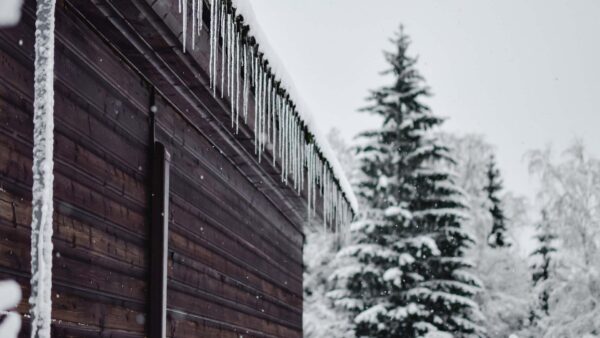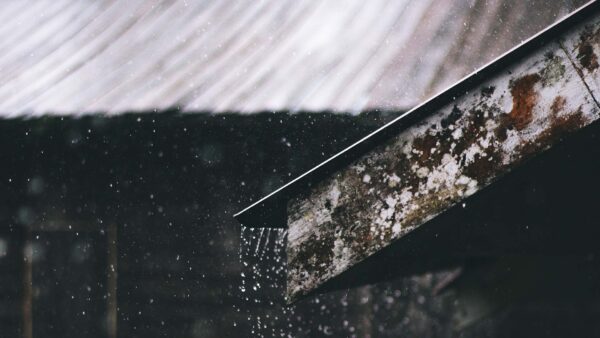Natural disasters in Ontario have been increasing in severity and frequency over the last couple years. Some of these recent disasters have ranked among the most costly events in Canadian history, with insured damages reaching hundreds of millions of dollars.
If a severe storm blows in and damages your home, what do you do? What’s covered by your insurance?
Shingles blown off of the roof
When it comes to natural disasters and insurance, you can expect most home policies to cover damage due to wind. Here’s how to proceed following an event.
Say the windstorm that struck your property caused shingles to be blown off your roof. It’s not a pretty sight, but it doesn’t always have to signal the end of the world. Here’s how to proceed:
- If emergency services are required, you are free to contact a roofer of your own choosing. Emergency repairs may be made only to prevent further damage, as your insurance company will still need to be able to evaluate the full extent of the damage and recommend repair options.
- This may mean that emergency services can only provide what is necessary to prevent the entrance of water, meaning tarps and temporary shingle patches. You can also DIY these emergency repairs yourself.
- Make sure that the emergency roofers provide you with photos of the damage prior to doing any emergency repairs.
- Make sure to keep a copy of that roofer’s report and any receipts for emergency services on-hand to speed up the claims process.
- Remember: you don’t have to leave the roof in its worst, damaged state for the insurance company’s hired roofer to come and see. At the very least, do what is necessary to prevent further damage – but no more.
- You may only be entitled to claim on affected slopes of your roof. If only one slope is affected, you won’t be entitled to claim a full roof replacement.
Damaged Fences
Detached private structures, such as signage and fencing, may be covered under your home insurance policy if they are damaged by an insured peril like wind:
- Your insurance will only cover the portion of the fence that you are responsible for, minus your policy’s deductible. If the fence that was damaged is a fence you share with a neighbour, both of your policies will kick in to cover half the damage. You would both have to pay your deductibles to your respective companies.
Fallen Trees
If a tree fell onto your property, then you may be asked whether the tree that damaged your house (and may also require removal) belongs to yourself, to your neighbour, or to the city.
- If the tree belonged to you, it usually isn’t covered by wind damage. Any property, whether that’s your home or fencing, damaged by the tree likely will be covered.
- If the tree belonged to your neighbour or the city, then the property that was damaged may be covered. The cost to remove the tree may then become the responsibility of that neighbour or the city (whichever is applicable.)
Power outages
In some severe cases, power outages can cause you to be without electricity or heat for days on end. What coverage applies for if your home is suddenly without power?
- Unfortunately, most home policies’ additional living expenses coverage (i.e., the coverage designed to reimburse you for necessary costs during a time where you can’t live in your home) won’t cover anything if you need to leave your home due to power outage unless there’s damage to the dwelling itself.
- Food spoilage is rather common due to power outages, and only some companies offer coverage for this. Check with your insurer to be sure.
Preventative measures you can take to protect your property:
Wouldn’t that be great if we could control the weather? Sadly, we can’t, and taking care of your home is the responsibility of only yourself, and as such it’s important that we be mindful of weather alerts and take precautions to protect our property. The better prepared we are, the better we can minimize the risks of windstorm damage to our homes.
Here are some preventative measures you can take:
- Be mindful of weather alerts. If there is a storm alert in your area, it might be time to start thinking about securing your property or even evacuating.
- Store your vehicle safely. Hail is often another condition of severe weather, and it can come alongside high winds. If there’s a storm, take your car and park it either indoors if possible or take it somewhere away from streetlights, power lines, or away from trees. A public underground parking lot might be ideal.
- Secure outdoor furniture that isn’t already tethered to the ground or take it indoors to prevent it from being dangerous projectiles.
- Maintain trees on your property during regular days, to prevent any weak branches from coming loose or falling onto your home.
- Note any loose shingling on your roof or holes left by high winds. These could bring on the addition of water damage, which is seriously detrimental and can cause thousands of dollars’ worth of damage, fast.
For more questions about your home insurance coverage, or assistance with a claim, talk with your broker who can evaluate your risks and give you personalized advice. They may also have tips on how to save money on your home insurance premiums.
Looking for home insurance?
Speak with a Mitch Insurance broker today to get a quote on Ontario home insurance. Learn more >
Call now
1-800-731-2228







